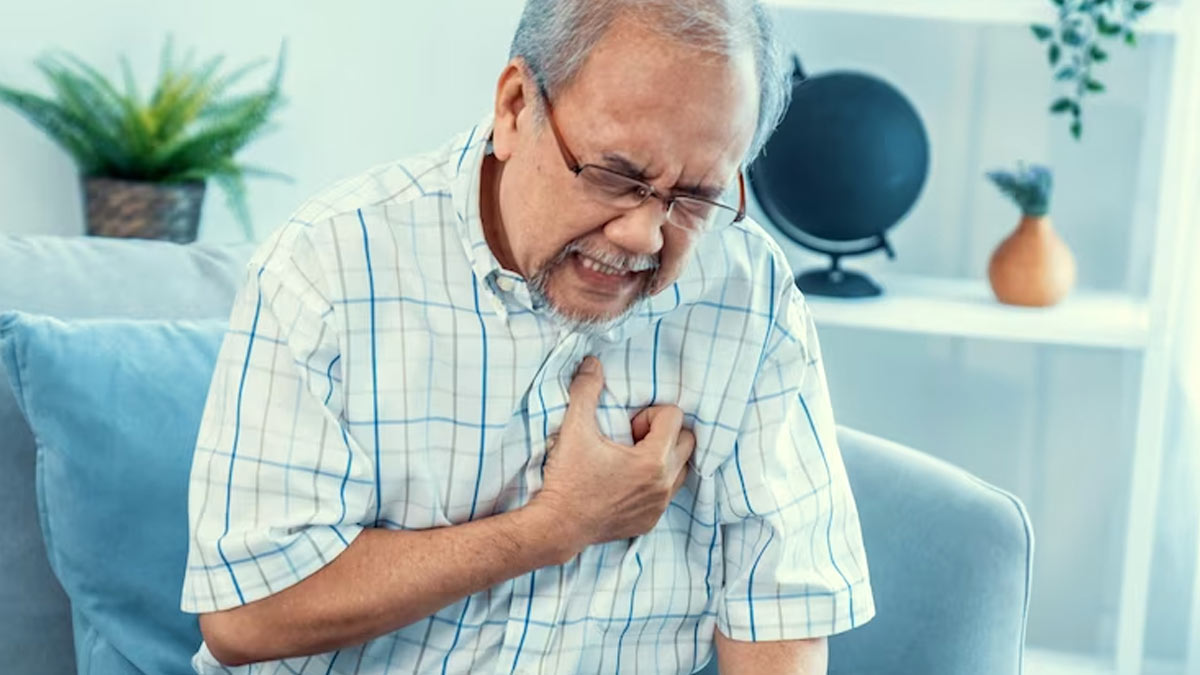
The number of deaths due to heart attacks in India is increasing rapidly. It has become common for people to develop heart disease due to their lifestyle and unhealthy choices. Therefore, all of us need to know the early signs and symptoms of heart attacks and what to avoid to save a person's life. Without treatment to restore blood flow, heart muscle damage increases over time. Whether you are going through sudden cardiac arrest yourself or are with someone else who is, immediate action can save lives.
Table of Content:-
We spoke to Dr Naman Patel, MD, Physician, who listed the heart attack symptoms and the measures that should be followed right after it.
Symptoms Of Heart Attack

Chest pain
Chest pain is one of the significant signs of a heart attack. A person may feel pain or discomfort, squeezing, or fullness in the centre or left side of the chest. It can last for a short time and fade away and then may reappear. The blockage that prevents blood from reaching the heart muscle is the cause of this pain. Rest will not make the pain go away.
Pain in the upper body
The pain may be felt in one or both arms, which may even radiate to the shoulders. There may also be neck, back, teeth, or jaw pain.
Shortness of breath
The person may have difficulty breathing, which can happen with or without chest discomfort.
Also Read: Can Children Get Heart Attacks? Expert Explains Significance & Prevention
Lightheadedness
The person may feel dizzy, weak, break out in cold sweat, or faint.
You should note that the symptoms may differ among individuals along with their severity. Apart from the symptoms listed above, women may show uncommon symptoms such as nausea, vomiting, unusual fatigue, sleep disturbances, and discomfort in their gut. Heart attacks can sometimes even mimic the symptoms of gastritis.
What You Should Do
- You should immediately call an ambulance and provide medical help to the patient at the earliest.
- Do not panic and make the person sit or lie down. Loosen their clothes and do not give them anything to eat or drink apart from their medication.
- If you suspect someone is breathing heavily and may have a heart attack, you should check their pulse. Listen to their heartbeat by placing your ear over the person's chest. If you don't find a pulse or the person breathing, you may have to give the patient CPR.
- You can give the patient an aspirin or GTN (nitrates-vasodilator) if they are not allergic to it. Aspirin inhibits blood clotting and reduces the size of any potential blood clots.
Also Read: What Are Anxiety-Related Heart Palpitations, Expert Explains
Tips To Keep Your Heart Healthy

- You should quit smoking as it causes hypertension and leads to heart failure. You should also avoid second-hand smoke exposure.
- Maintain a healthy diet and eat foods that promote cardiovascular health.
- If you have high cholesterol, you should adopt changes to lower it as it may trigger a heart attack.
- Do not forget the importance of exercise to improve your overall health. Exercise daily or engage in physical activities.
- You should maintain a healthy weight and manage diabetes.
- Avoid drinking alcohol excessively as it raises blood pressure and increases the chances of heart disease.
Takeaway
Untreated heart attacks may have profound effects. Therefore, do not ignore the symptoms and get medical help when you suspect an attack. It takes less than 90 minutes for an individual to reach critical levels of damage after experiencing symptoms.
Also watch this video
How we keep this article up to date:
We work with experts and keep a close eye on the latest in health and wellness. Whenever there is a new research or helpful information, we update our articles with accurate and useful advice.
Current Version